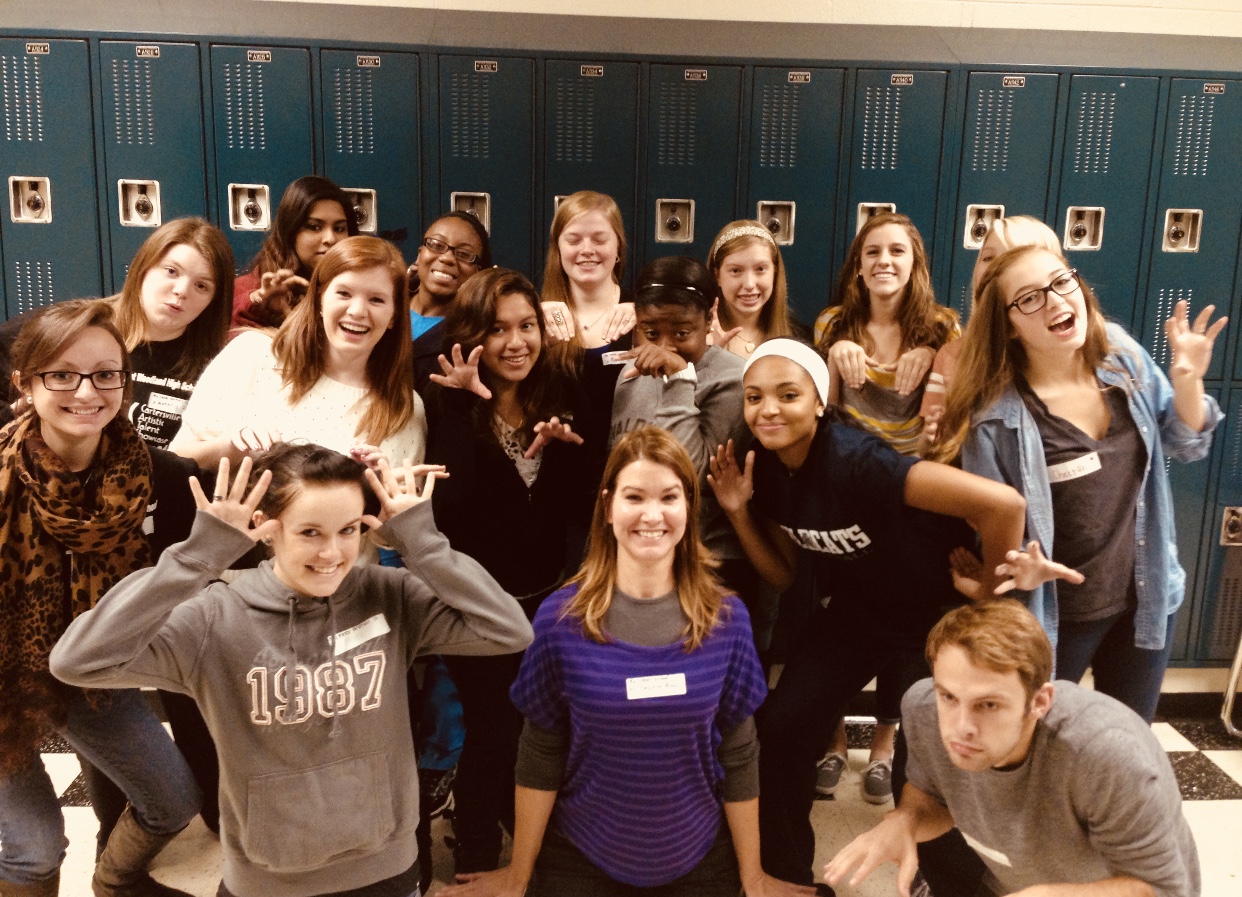It’s time to put this school year to bed.
We’ve got three more weeks with kids and then one more for post-planning, and I’m ready. This year nearly convinced me I didn’t want to ever teach again.
It’s just been so hard. To keep going. To make connections. To smile.
Nobody could see them anyway, hidden behind our masks. And for me, Miss Far-from-Dynamic-or-Charismatic-or-Entertaining… smiles are how I form connections with my kids. How I build relationships with them. One reassuring, genuine smile at a time. (But after the loss of two of the most important people in my life, the few smiles I had weren’t always even genuine.)
Some folks have a presence that commands, an energy that radiates off their entire being like they swallowed the sun and breathe its fire through their pores.
That’s not me.
I’m quiet and unassuming, and I easily blend into the background. But I am warm and I am safe. I’m steady and exacting. And so is my classroom. And smiles are how I convince students to take risks inside its walls, under my warm, watchful eye… and smile.
I’m a firm believer in rigor. I challenge. I set a high bar and watch my students struggle to meet it, with smiles of encouragement and with applause and constructive criticism, and the warm assurance that they are in a safe place.
But not this year.
This year, the rigor was softened — the only soft spot in the entire year.
It had to be. This year, the rigor couldn’t come from the classroom because the rigor was coming at them hard from life. For them. And for me. These are some of the toughest tests we’ve ever endured.
So the smiles were lost. From them. From me.
And we all feel lost. We all feel like we lost.
And we did. We have.
We lost loved ones. I lost my dad. I lost my aunt.
We lost our edge and gained a few edges we’re not proud of — edges formed from resentment and anger. And we nearly lost our motivation. (Some of us, sadly, did.) And our lights were nearly snuffed out.
Remember that old Sunday School song about hiding your light under a bushel? Well, with our smiles hidden under a bushel, the Satan in the form of Covid almost stole our light.
Me, I’ve tried faking it till I make it. Since my smiles are invisible, I’ve tried slipping them inside my voice. Packing my vocal chords as tight with tinkling, prismatic light as I possibly can and then practically singing each student’s name as they come down the hall. But the muffler slung ear to ear on my face acts as a soft pedal, tamping down my smile and energy. They meet me with their own, soft, tamped down greetings behind their own, soft, tamped down smiles.
And the connections have been slow. Or not at all. With almost all of them. Except, thankfully, for my study hall kids. My study hall kids make for an ideal case study on the importance and value of smiles.
Those kids, they get to see me smile. And I get to see them smile. And for an hour each day during lunch, they eat in my room, and I eat in my room, and none of us wear masks. It’s a small group of eighteen. And they’re all spaced out – each to their own five foot desk.
So no masks, and lots of smiles. And the relationships I have with them are flourishing.
But with my six other classes? Well.
We are not well and good. We are far from it. And we are all so thankful this year is drawing to a close.
No, this year has not been my best. And it sounds silly to say because I know no teacher thinks this year was their best. Nobody at all thinks this year was their best.
But I guess sometimes saying it helps. Sometimes saying it helps us move on. And I need to move on. I’m ready.
I’m ready to put this school year to bed and wake up and unleash my smile.





